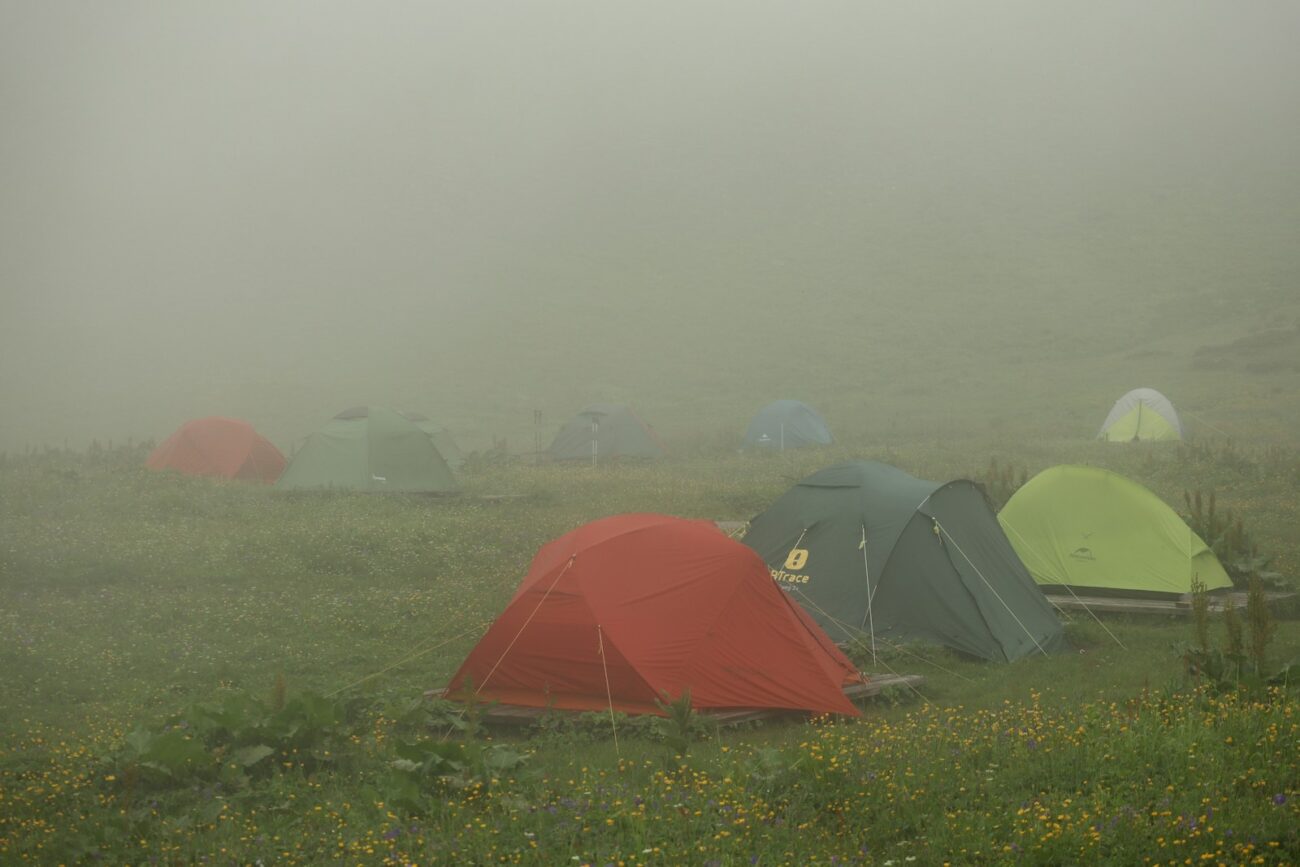There’s something magical about escaping into the wilderness, setting up a temporary home under the stars, and disconnecting from the hustle of everyday life. Camping offers a unique opportunity to reconnect with nature and create lasting memories with friends and family. However, even the most well-intentioned outdoor enthusiasts can fall prey to common camping pitfalls that turn an anticipated adventure into an uncomfortable or even dangerous experience. Whether you’re a first-time camper or a seasoned outdoor veteran, being aware of these potential mistakes can help ensure your camping trip remains the rejuvenating escape you envisioned rather than a cautionary tale. Let’s explore fifteen camping mistakes you’ll want to avoid on your next outdoor adventure.
1. Inadequate Pre-Trip Research
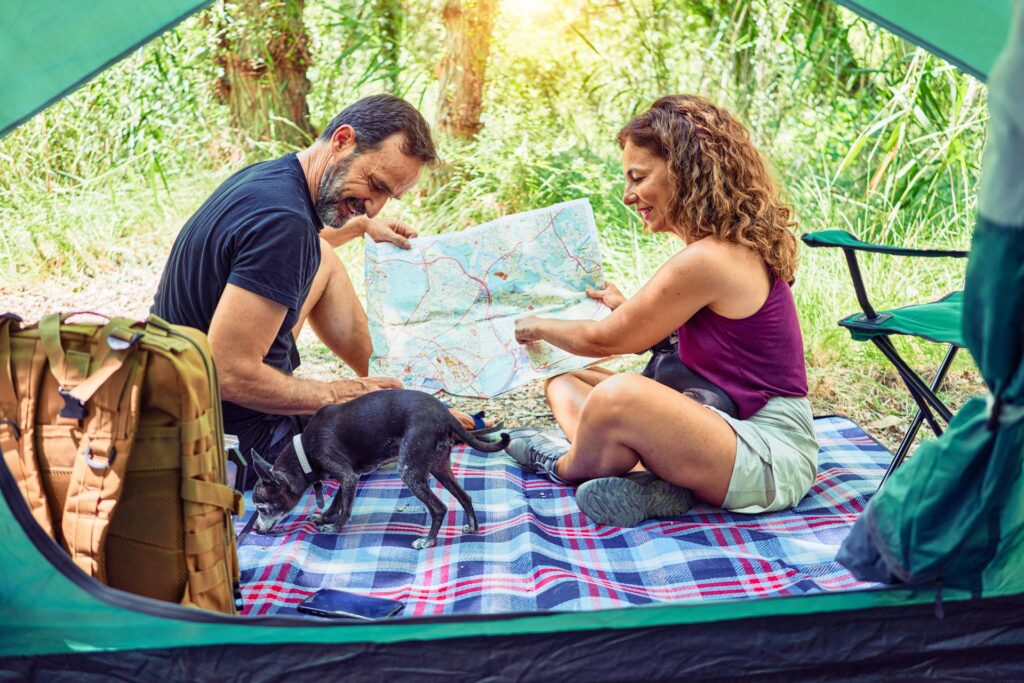
Failing to research your camping destination thoroughly is perhaps the most fundamental mistake campers make. Without proper research, you might arrive at a site that’s closed for the season, lacks essential facilities you were counting on, or has unexpected restrictions on activities like campfires or fishing. Weather patterns, local wildlife concerns, and permit requirements can vary dramatically between locations, making research crucial for preparation. Take time to read recent reviews, check official park websites for notices, and perhaps even call the ranger station for the most up-to-date information before departing for your trip.
2. Neglecting Weather Preparation
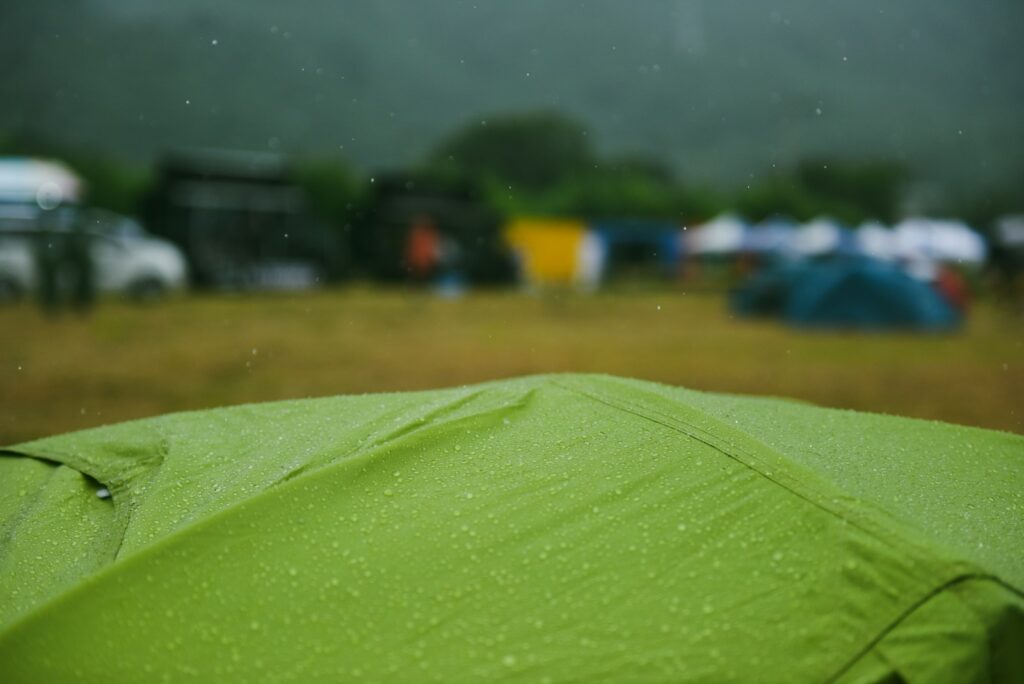
Weather can make or break a camping trip, yet many campers fail to adequately prepare for changing conditions. Packing based only on the forecast for your departure day ignores the reality that weather in outdoor settings can change rapidly, especially in mountainous or coastal areas. Always pack for conditions at least 20 degrees colder and wetter than predicted, including waterproof layers and extra warm clothing. Remember that nighttime temperatures often drop significantly even during summer months, particularly at higher elevations. Weather preparation extends beyond clothing to include proper tent positioning (away from low areas that could flood) and secure staking to withstand unexpected winds.
3. Setting Up Camp After Dark
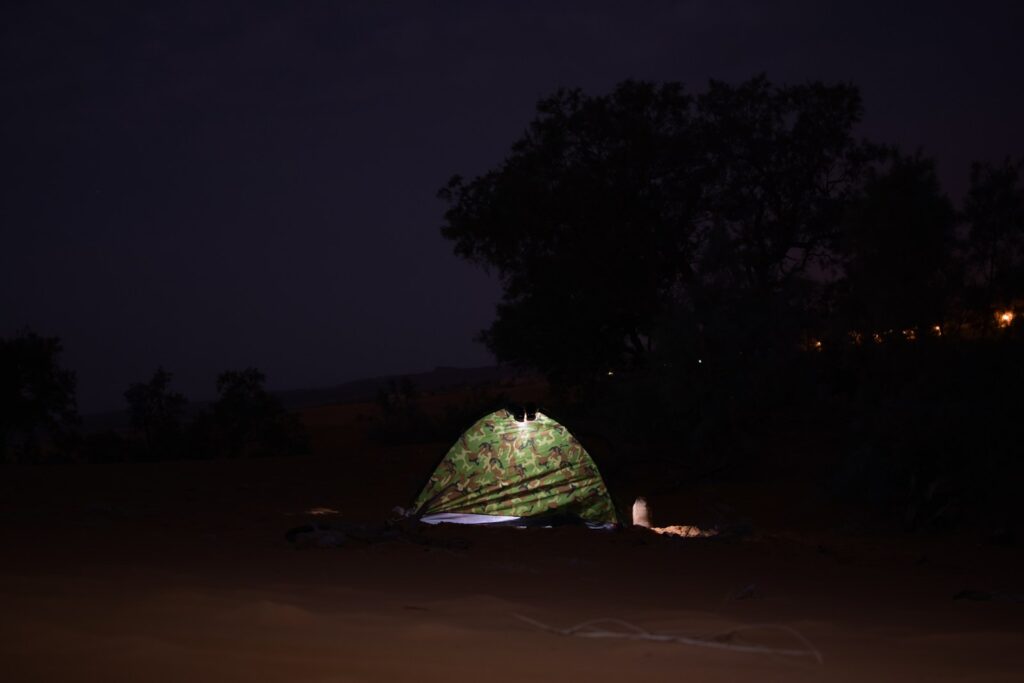
Arriving at your campsite with just minutes of daylight remaining is a stress-inducing mistake even experienced campers occasionally make. Setting up a tent, organizing your camp kitchen, and securing food from wildlife all become significantly more challenging when performed by flashlight. The limited visibility increases the likelihood of choosing a poor tent location—perhaps on a slope, over a tree root, or in a natural drainage path. Planning your arrival at least three hours before sunset gives you ample time to establish your campsite, gather firewood if permitted, and familiarize yourself with the immediate surroundings before darkness falls. This buffer also accounts for unexpected delays in travel that might otherwise force a rushed setup.
4. Bringing Inappropriate Gear
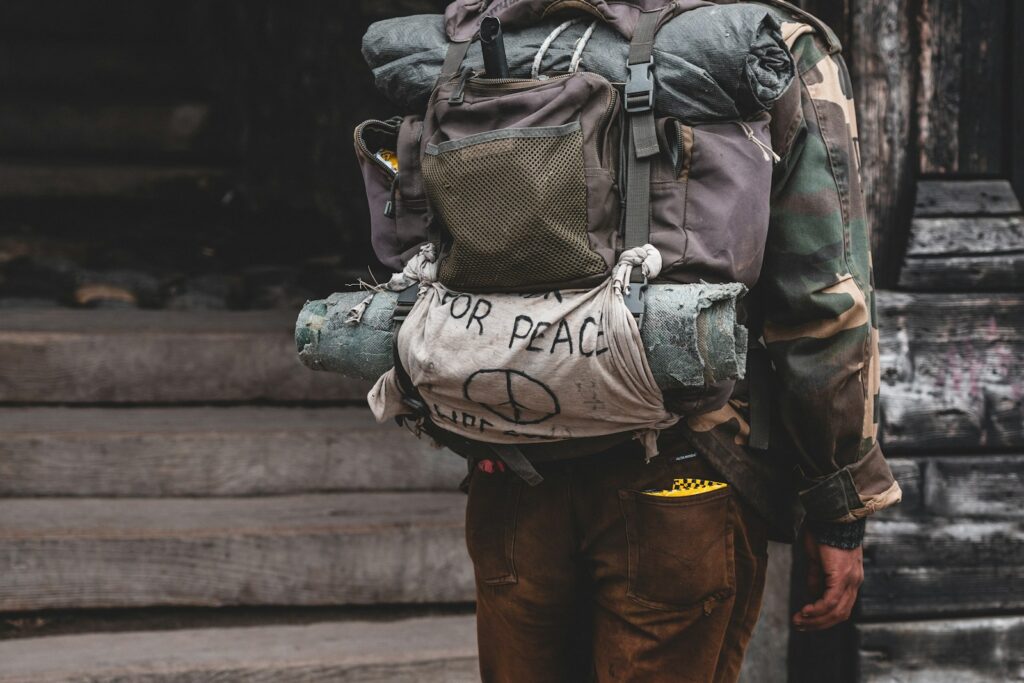
The temptation to bring every comfort from home often leads to overpacking, while an overzealous minimalist approach can leave you missing essential items. Finding the right balance requires thoughtful consideration of your specific camping environment, duration, and personal needs. A lightweight backpacking tent might be perfect for a wilderness trek but inadequate for a family campground with unpredictable weather. Similarly, cotton clothing retains moisture and loses insulating properties when wet, potentially leading to hypothermia even in mild conditions. Invest in quality, appropriate gear suited to your camping style, and create a customized checklist that evolves based on your experiences rather than using generic packing lists found online.
5. Improper Food Storage
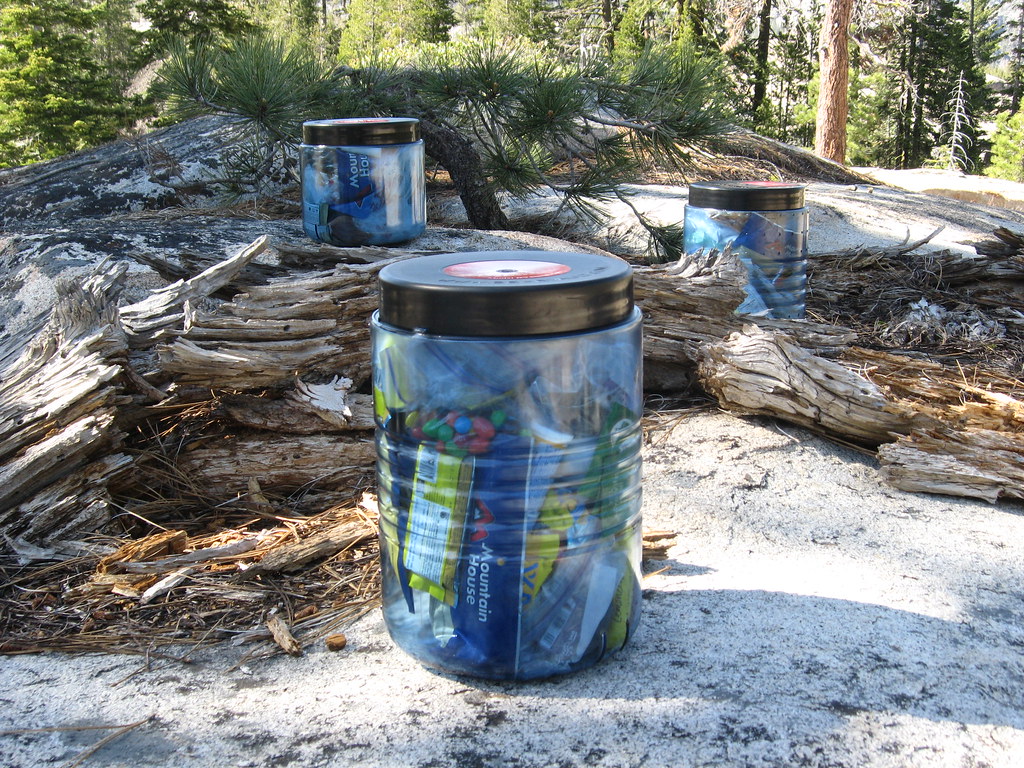
Underestimating wildlife’s attraction to food scents is a mistake that can have serious consequences for both campers and animals. Even in areas without large predators like bears, smaller animals such as raccoons, squirrels, and mice can create significant problems if they access your food supply. Proper food storage involves more than simply placing coolers in your vehicle at night; it extends to disposing of cooking water away from your campsite, changing clothes if you’ve spilled food on them, and storing scented items like toothpaste with your food. In bear country, using designated food lockers or properly hanging food bags at least 10 feet high and 4 feet from any vertical support is essential for safety. Remember that habituating wildlife to human food not only risks your supplies but often leads to negative outcomes for the animals themselves.
6. Ignoring Fire Safety
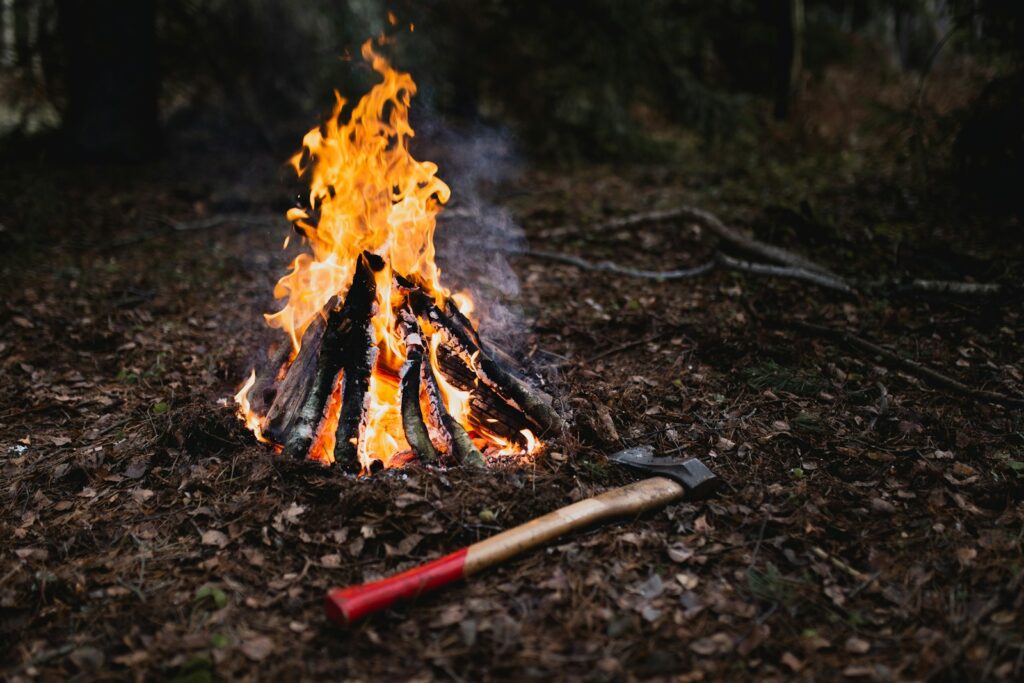
Campfires create atmosphere and warmth, but mismanaging them remains one of the most dangerous camping mistakes. Many wilderness areas have specific fire regulations that change seasonally, with complete bans often in effect during dry periods. Before building any fire, check local regulations, use established fire rings where available, and always keep water and a shovel nearby for extinguishing. A properly extinguished campfire should be cool to the touch—many forest fires have started from campfires that appeared extinguished but continued to smolder underground. Always maintain a safety zone around your fire clear of flammable materials, never leave fires unattended, and remember that winds can carry embers significant distances into dry vegetation.
7. Underestimating Water Needs
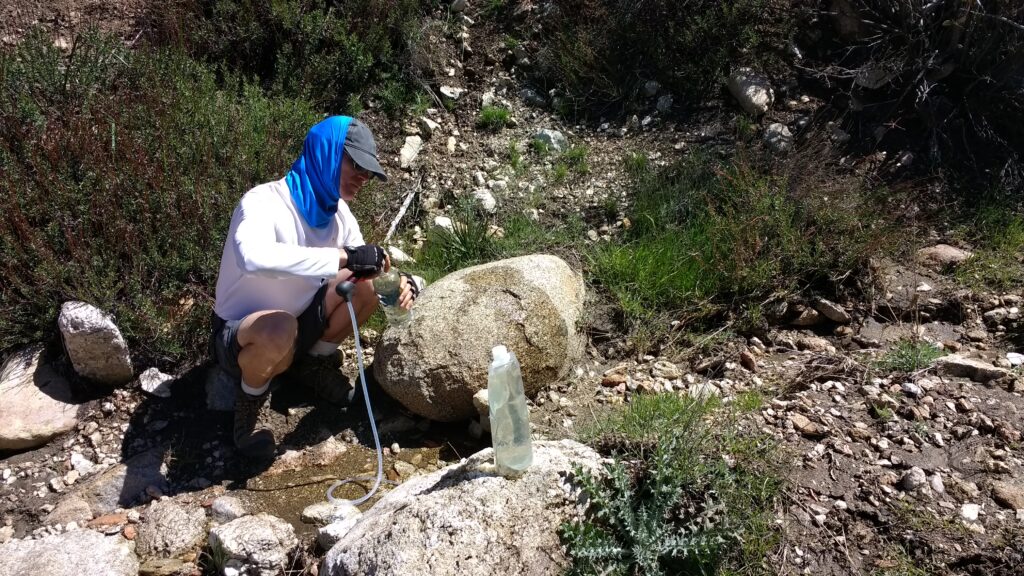
Dehydration can quickly transform from an inconvenience to a medical emergency, especially when camping in hot weather or at higher altitudes. Many campers miscalculate their water requirements, planning for normal consumption without accounting for increased needs due to physical activity, dry air, or the demands of cooking and cleaning. As a general rule, plan for at least one gallon per person per day in moderate conditions, and substantially more in hot weather or when hiking. Even at developed campgrounds with water sources, temporary outages can occur, making it wise to arrive with at least a day’s emergency supply. For backcountry camping, thoroughly research water availability along your route and always carry means to purify water from natural sources, as even the clearest mountain stream may contain harmful pathogens.
8. Poor Tent Placement
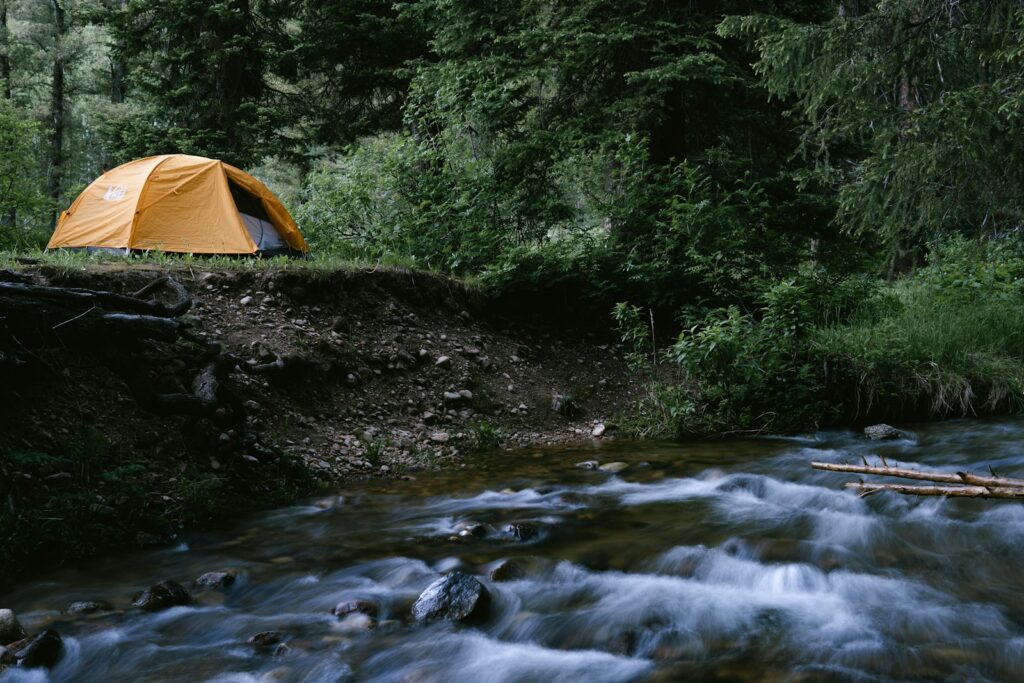
The location of your tent significantly impacts your camping comfort and safety, yet many campers give it insufficient consideration. Avoid setting up in depressions where water will collect during rainfall, and be mindful of widow-makers—dead branches overhead that could fall during wind. Position your tent on slightly elevated, level ground, removing rocks and sticks that might press through your tent floor. Consider the path of the sun—a tent placed in full eastern exposure will become unbearably hot shortly after sunrise, potentially cutting hours off your comfortable sleep time. Similarly, proximity to water features increases condensation inside your tent and exposure to insects, while camping too close to trails or facilities sacrifices privacy and increases noise disturbance from other campers.
9. Disregarding Leave No Trace Principles
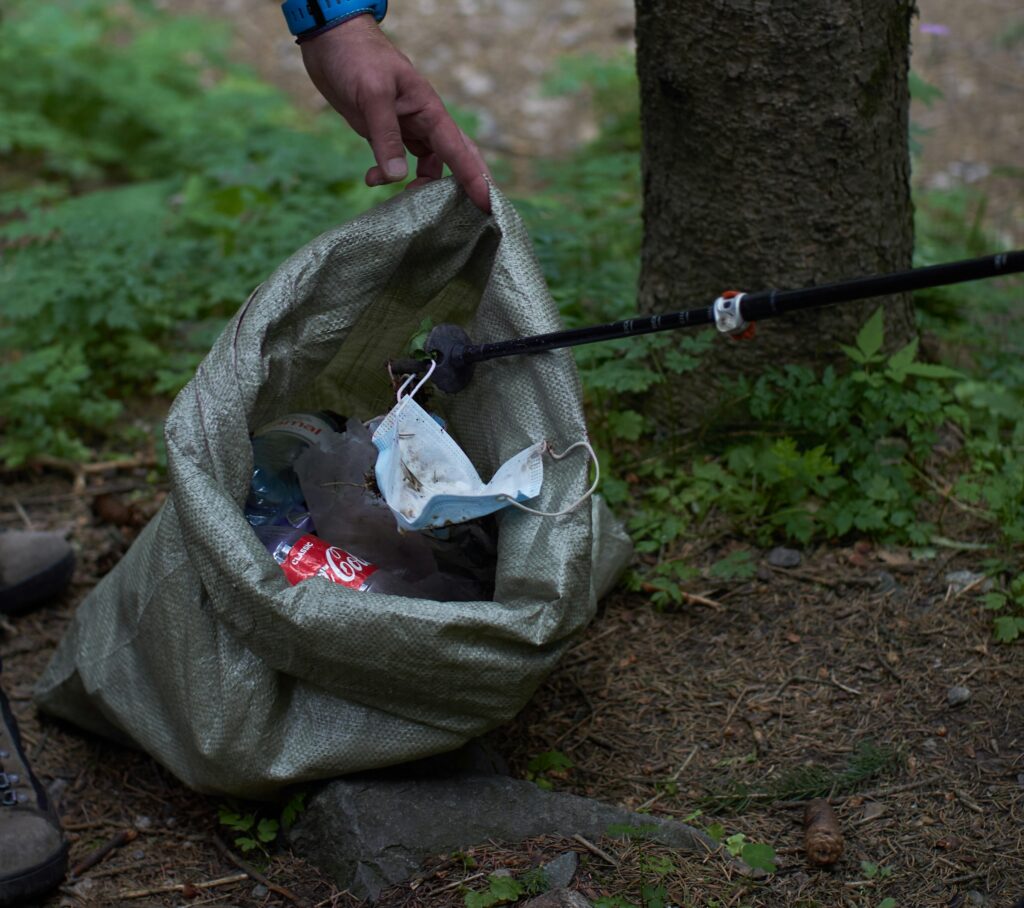
Responsible camping requires more than simply packing out trash; it encompasses a comprehensive approach to minimizing your impact on natural areas. The seven Leave No Trace principles provide essential guidance that many campers either don’t know or choose to ignore. These include properly disposing of waste (including biodegradable items like fruit peels, which can take years to decompose in some environments), respecting wildlife by observing from a distance, and being considerate of other visitors by keeping noise levels reasonable. Particularly problematic is the creation of new fire rings or cutting live vegetation for convenience, both of which cause lasting damage to the environment. Each pristine natural area remains that way only when every visitor commits to leaving it undisturbed for future generations to enjoy.
10. Forgetting Essential First Aid
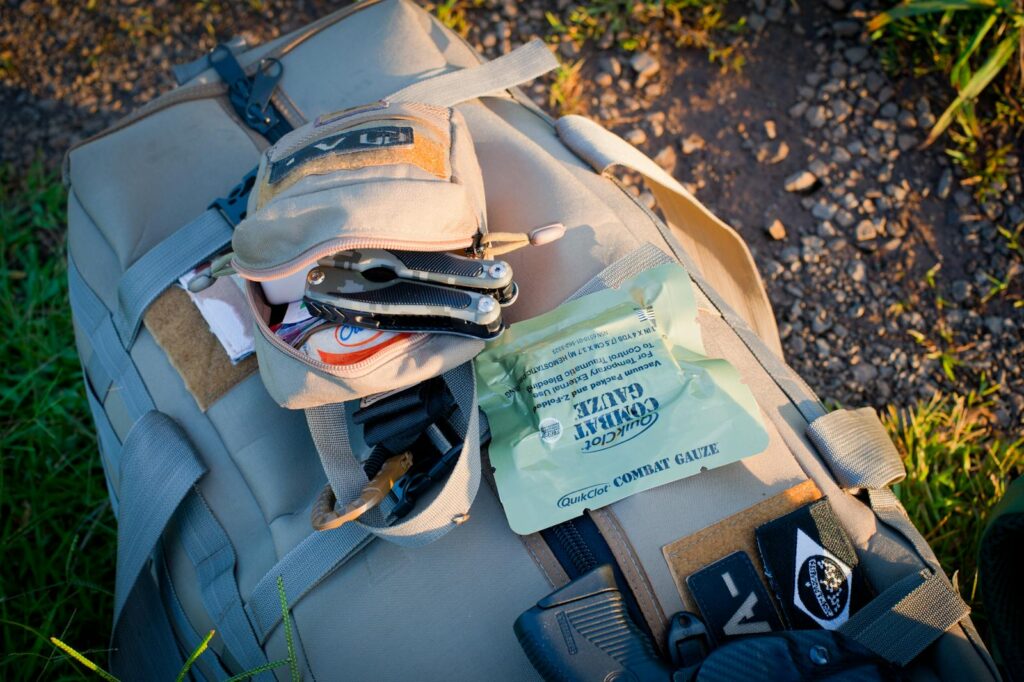
Medical emergencies don’t announce themselves in advance, making a well-stocked first aid kit non-negotiable for responsible camping. Beyond basic supplies like bandages and antiseptic, your kit should include items specific to your destination’s environmental conditions and potential hazards. For instance, camping in tick-prevalent areas necessitates fine-tipped tweezers for tick removal, while high-altitude destinations might warrant medication for altitude sickness. Equally important is knowing how to use your supplies effectively—a compression bandage is of limited value if you’re unsure how to properly wrap a sprained ankle. Consider taking a wilderness first aid course, which covers techniques specifically relevant to situations where professional medical help may be hours away. Remember also to include personal medications and ensure everyone in your group knows where the first aid kit is stored.
11. Failing to Test Gear Before Departure
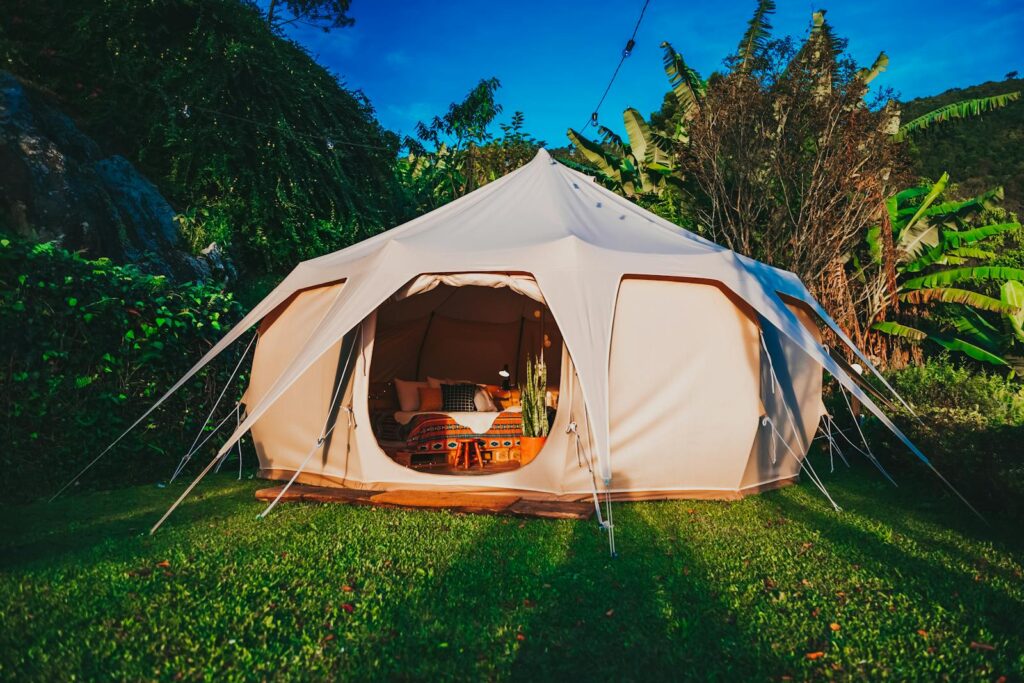
Discovering equipment problems while in the field transforms minor inconveniences into major challenges, particularly with essential items like tents, stoves, or water filters. Setting up a new tent in your backyard reveals potential issues with missing components or complicated assembly that you can address before your trip. Similarly, firing up your camp stove ensures it’s functioning properly and that you remember how to operate it safely. Even experienced campers benefit from equipment checks, as gear stored between trips can develop issues like mold on tent fabric, leaking fuel canisters, or batteries that have drained in storage. This pre-trip testing should extend to clothing and footwear—breaking in new hiking boots around town prevents painful blisters on the trail, and checking that rain gear still repels water (rather than having absorbed oils from previous use) can prevent a miserable experience during unexpected downpours.
12. Not Planning for Emergencies
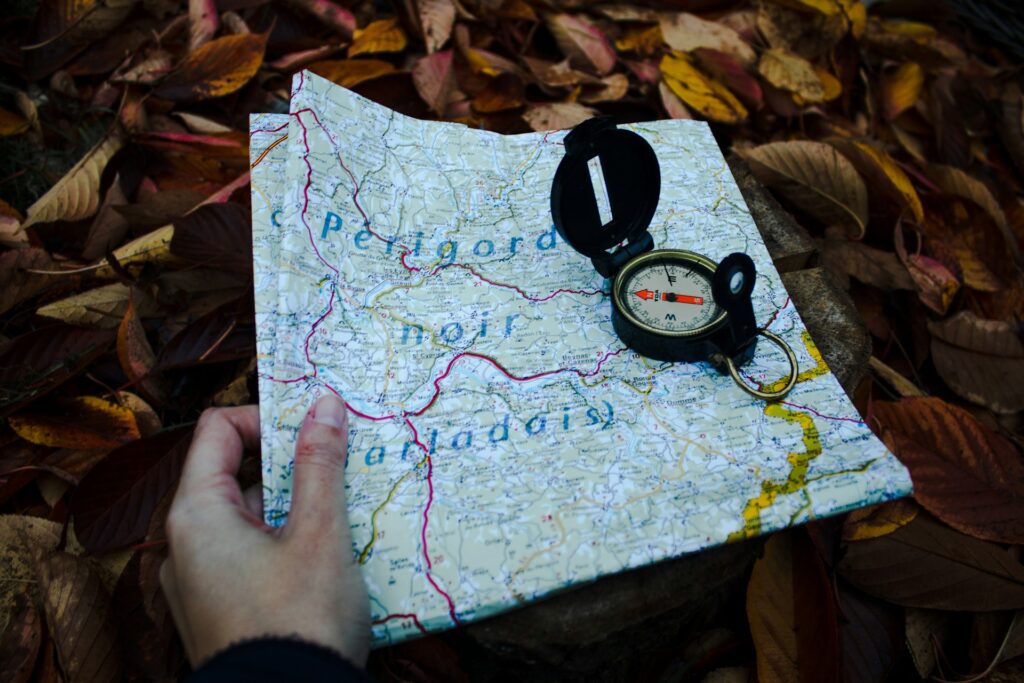
The remote settings that make camping appealing also create challenges during emergencies, yet many campers venture out without adequate emergency preparations. Cell coverage is often limited or non-existent in wilderness areas, making it essential to leave detailed trip plans with a reliable contact person, including your expected return time and actions they should take if you don’t check in. Carrying a charged power bank for your phone, a paper map and compass (with the knowledge to use them), and potentially a satellite communicator for remote locations provides layers of emergency communication options. Weather radios offer advance warning of approaching storms, while emergency signaling devices like whistles and mirrors can help search teams locate you in disorienting environments like dense forests. Perhaps most important is a mental preparation—knowing when to turn back from a trail or abort a trip entirely when conditions become unsafe.
13. Overlooking Local Wildlife Concerns

Different camping regions present unique wildlife considerations that require specific preparation and awareness. In bear country, this might mean carrying bear spray and knowing proper food storage techniques, while desert camping necessitates awareness of scorpions and venomous snakes. Research before your trip should include identifying potentially dangerous wildlife in your destination area and understanding appropriate responses to encounters. Beyond safety concerns, wildlife awareness extends to minimizing your impact on animal behavior and habitats. Activities like feeding wildlife, approaching animals for photographs, or allowing pets to chase local fauna disrupt natural behaviors and can be harmful to both the animals and future visitors. Remember that many species are most active at dawn and dusk, making these periods particularly important for heightened awareness around camp.
14. Misjudging Physical Demands

Camping often involves physical activities that exceed normal daily exertion, from hiking with loaded backpacks to gathering firewood or setting up camp. Underestimating these demands leads to exhaustion that diminishes the enjoyment of your trip and potentially creates safety issues if you’re too tired to respond appropriately to changing conditions. Be realistic about your current fitness level when planning activities, particularly if camping at higher elevations where reduced oxygen levels intensify physical challenges. Build appropriate rest periods into your itinerary rather than scheduling ambitious activities for every day of your trip. For family camping, remember that children typically have limited endurance for sustained hiking but often demonstrate remarkable energy for exploring around the campsite—plan accordingly with shorter trails and more base camp time to match their natural rhythms.
15. Failing to Adapt to Changing Conditions
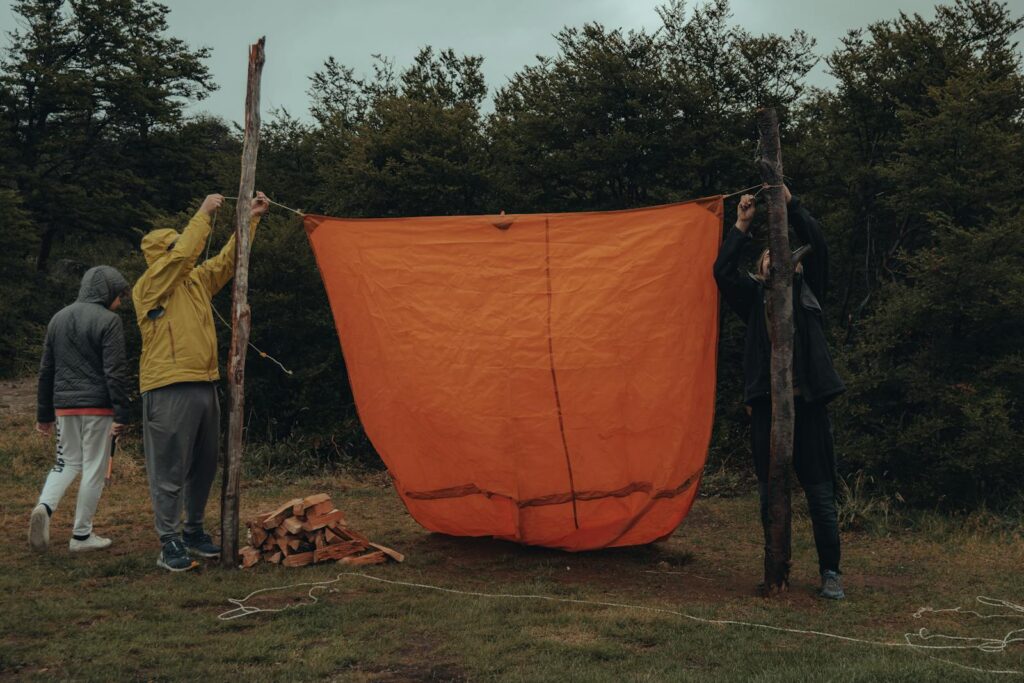
Perhaps the most critical camping skill is flexibility—the ability to adjust plans when circumstances change. Many camping mishaps result from rigid adherence to original plans despite warning signs like deteriorating weather, physical exhaustion, or equipment failures. Successful campers recognize that safety and enjoyment sometimes require changing course, whether that means cutting a trip short, selecting an alternate campsite, or postponing a planned hike when conditions aren’t favorable. This adaptability extends to learning from experience during your trip—if your sleeping pad proves inadequate on the first night, improvise additional insulation rather than enduring multiple uncomfortable nights. Remember that even the most meticulously planned camping trip involves elements beyond your control, and the ability to problem-solve creatively with available resources often defines the difference between a challenging adventure and a miserable experience.
Camping offers unparalleled opportunities to create meaningful connections with nature and loved ones, but success depends largely on preparation and awareness. By avoiding these fifteen common mistakes, you’ll significantly increase your chances of a safe, comfortable, and memorable outdoor experience. Remember that camping skills develop over time, and even seemingly disappointing trips provide valuable lessons for future adventures. Each time you venture out, you’ll refine your approach and discover personal preferences that make the experience increasingly rewarding. The true spirit of camping embraces both the planned moments and unexpected challenges, transforming potential mistakes into stories of resilience and adaptation that enhance your connection to the natural world.

